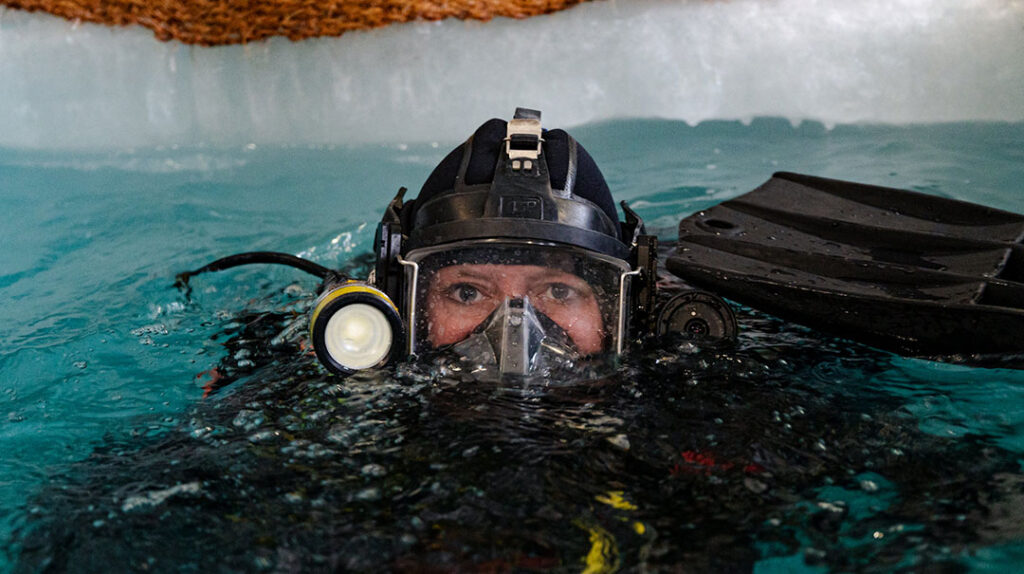A Canadian diver conducts operations during Operation Nanook-Nunalivut in Rankin Inlet, Nunavut, on March 8, 2023. CANADIAN ARMED FORCES
THE WATCH STAFF
Canada demonstrated a steadfast commitment to maintaining security in the Arctic when it hosted the recent Operation Nanook-Nunalivut with its allies and partners. More than 300 Canadian Armed Forces (CAF) members worked alongside about 50 military service personnel from Belgium, France, Germany and the United States on March 1-17, 2024. The exercises took place in and around Nunavut, Resolute and Yellowknife.
Resolute, which is 1,700 kilometers from the North Pole, is one of Canada’s northernmost communities, according to a March 1 CAF news release. In all, the Arctic covers 40% of Canada’s territory and is home to over 200,000 people — more than half of whom are Indigenous, according to the Canadian government.
“It is increasingly important to be able to project and sustain forces in the Canadian Arctic. Operation Nanook-Nunalivut is our opportunity to demonstrate Canada’s presence and sovereignty … while training to operate in austere and difficult environments,” said Vice Adm. Bob Auchterlonie, commander of Canadian Joint Operations Command, in the news release.
Canada’s participants in Operation Nanook-Nunalivut, where the exercises ranged from long-range patrols, austere logistics and below-ice diving, included the Army’s 2nd Canadian Division, the 1st Canadian Ranger Patrol Group, and Navy port-inspection and combat divers. About 30 members of the U.S. Army’s 86th Infantry Brigade Combat Team took part in the exercises. Operational support was drawn from local and regional partners specializing in Arctic terrain, infrastructure and logistics support, according to the news release.
Operation Nanook-Nunalivut, held annually since 2007 in various locations in the Far North, also helps the United States maintain security in the U.S. Northern Command (USNORTHCOM) area of responsibility. The interoperability between the Canadian and U.S. militaries helps protect the nations’ homelands and upholds the international rules-based order in the Arctic. Canada and the U.S. are partners in the North American Aerospace Defense Command (NORAD), a bi-national organization charged with the missions of aerospace warning and aerospace control for the continent.
This is a “vast, harsh, and demanding environment — careful preparation and close collaboration with our northern partners is key,” said Canadian Brig. Gen. J.M.Y.D. Rivière, commander of Joint Task Force (North), in the news release. “Knowledge shared with those Allies and partners strengthens our collective ability to adapt and meet these challenges.”
Those challenges include increased risks from strategic competition as Russia and the People’s Republic of China (PRC) expand their presence in the Arctic, where melting sea ice has opened shipping lanes. The warming climate has also opened the region to natural gas, oil and mineral extraction. On the military front, the threats range from Russian long-range aircraft and PRC spy balloons to out-of-area maritime activities by both of those potential adversaries. In a conflict, Russian missiles would have to traverse the Arctic to hit targets in southern Canada or the U.S. As a result, Canada and the U.S. have placed a renewed focus on the circumpolar Arctic.

